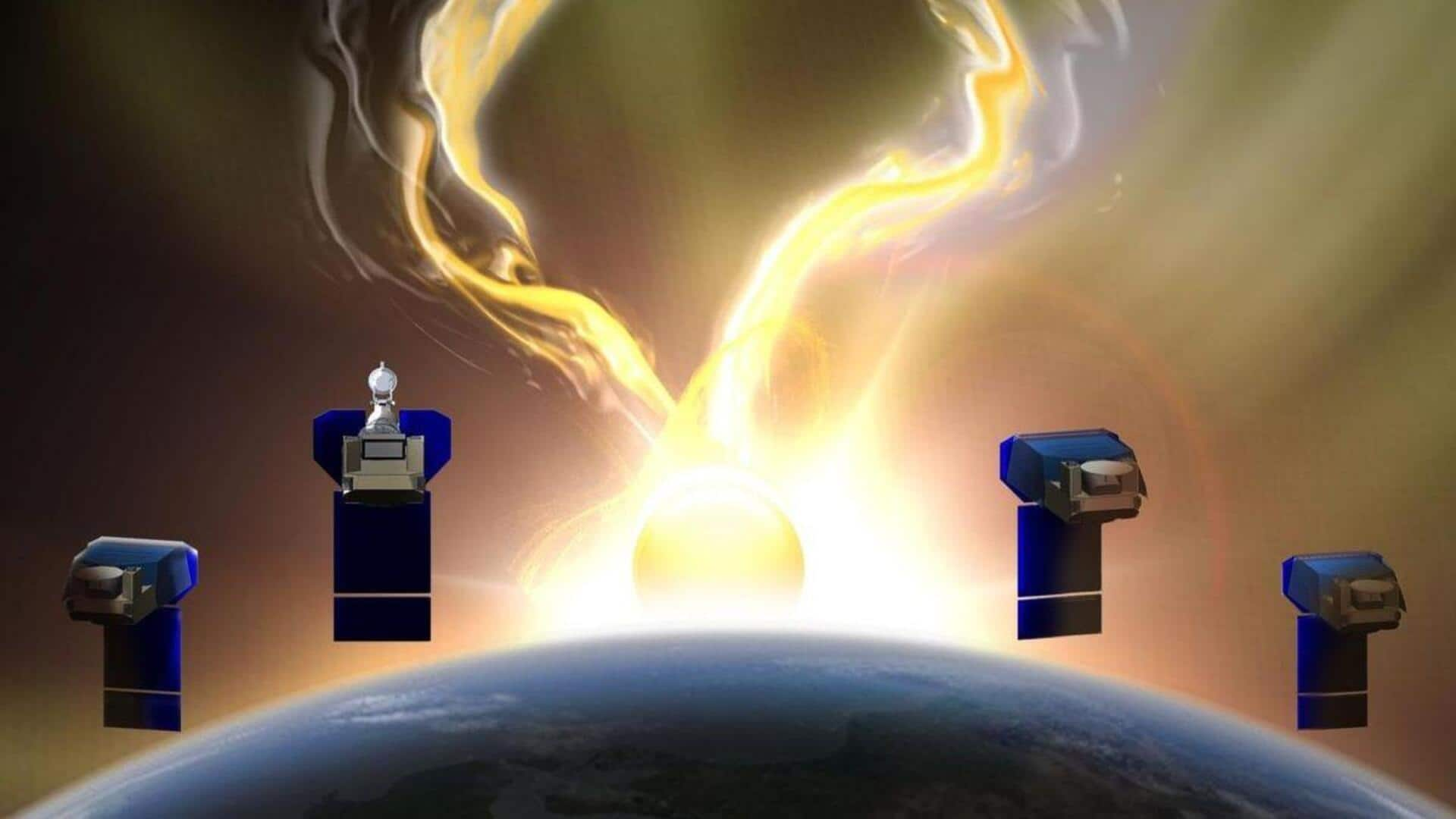
What is PUNCH—NASA's mission to solve biggest mystery of Sun
What's the story
NASA is gearing up for the launch of its Polarimeter to Unify the Corona and Heliosphere (PUNCH) mission on February 27.
The mission will employ four small satellites, which will be launched into orbit on a SpaceX's Falcon 9 rocket.
PUNCH's main goal is to study how the Sun's corona transforms into solar wind, a stream of charged particles that flows through our solar system.
Mission details
A bridge between solar and solar wind physics
What makes the PUNCH mission special is that it is specifically aimed at bridging the gap between solar physics and solar wind physics.
It will study how the Sun's outer atmosphere transitions into the heliosphere - a massive region formed by the solar wind that surrounds our entire solar system.
Joe Westlake, Director of NASA's Heliophysics Division, said this mission will offer continuous observation of the Sun's corona and its impact on space weather.
Satellite functions
PUNCH's satellite quartet to enable 3D observations
The PUNCH mission will use four satellites working together to produce 3D observations of the heliosphere.
Three of them will be packed with wide-field imagers to capture detailed views of solar wind structures.
The fourth satellite, developed by the Naval Research Laboratory, will utilize a narrow-field imager to produce an artificial total solar eclipse for continuous high-definition monitoring of the Sun's corona.
Weather forecasting
Enhancing space weather forecasting
The PUNCH mission is expected to revolutionize space weather forecasting by allowing real-time tracking of solar storms.
Nicholeen Viall, a mission scientist at NASA's Goddard Space Flight Center, said PUNCH's capability to capture polarized light will allow scientists to determine the 3D location of solar wind structures.
This could improve predictions of geomagnetic storms capable of affecting satellites and power infrastructure on Earth.
Collaboration
PUNCH to work alongside Parker Solar Probe
NASA has confirmed that PUNCH will work in tandem with Parker Solar Probe, which is making direct observations of the Sun's corona.
Combined, the missions will offer a comprehensive dataset across vast scales, giving unprecedented insights into how solar wind originates and interacts with the heliosphere.
Craig DeForest, the mission's principal investigator at the Southwest Research Institute, added PUNCH will also create the most extensive polarimetric star map covering over three-quarters of visible sky.